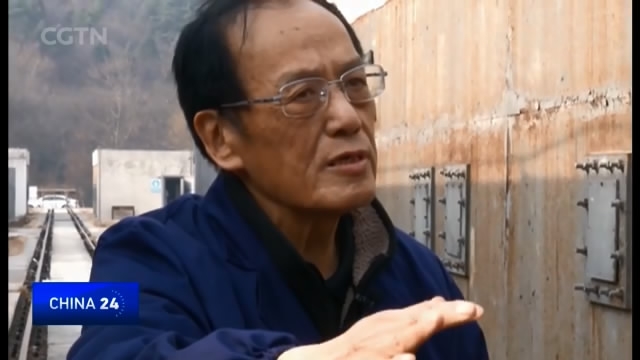
21:23, 08-Jan-2018
China Top Science Honors: 'King of Explosives' devotes life to national defense

Now, let's take a look at the distinguished careers of the two award winning Chinese scientists.
82-year-old Wang Zeshan's career spans over six decades.
WANG ZESHAN 2017 STATE SUPREME SCIENCE & TECHNOLOGY AWARD WINNER "My expertise is in explosives, also known as nuclear material. It is very important to national security and national defense."
As a member of the Chinese Academy of Engineering and a professor at the Nanjing University of Science and Technology, Wang's known in academic circles as the "King of Explosives" for his research on materials with important civilian and military applications.
He has spent his entire life working with explosives, specializing in energetic materials. Now in his eighties, Wang still spends more than half the year working. His students dub him as "post 80s", as he seems more energetic than the youngsters at the bitter cold explosion test site.
LIU ZHITAO, DOCTORATE STUDENT NANJING UNIVERSITY OF SCIENCE AND TECHNOLOGY "The environment here is about minus 10 degrees Celsius. Even though we young people are well equipped, we still can't bear the cold. Professor Wang keeps the same line as us in the same environment."
But Wang thinks he's in the best time ever to conduct scientific research.
WANG ZESHAN 2017 STATE SUPREME SCIENCE & TECHNOLOGY AWARD WINNER "Doing science means to be innovative, you have to walk in front of others, to contribute to our country. This is where I started and will not forget."
Wang was the first to develop technology to reuse obsolete explosives and energetic material with low temperature sensitivity. His inventions have improved the launch range of Chinese missiles and cannons by more than 20 percent.
Meanwhile, Hou Yunde, born in 1929, is a virologist and member of the Chinese Academy of Engineering. He led the team which built the country's infectious disease prevention and control system.
HOU YUNDE 2017 STATE SUPREME SCIENCE & TECHNOLOGY AWARD WINNER M, C "In human history, there previously was no way to deal with massive flu outbreaks, but in 2009 we successfully limited the flu pandemic."
Hou's team made the world's first H1N1 vaccine in 2009. It was recommended by the WHO that two doses would be needed to provide sufficient protection, but tests indicated that one dose would be sufficient for adults. The vaccines and other prevention measures proposed by Hou's team helped China get through the massive flu pandemic in 2009, with the nation's fatality rate five times lower than that of the international level.
DONG XIAOPING CHINESE CENTER FOR DISEASE CONTROL AND PREVENTION "He was the decision maker during many major epidemics in China. He is the director of the committee of experts. He is the man sitting on the crater and putting out the volcanoes."
Hou is known as the "father of China's interferon". He laid the groundwork for the research of molecular virology in China, and developed a genome project interferon, playing a leading role in the control and prevention of major infectious diseases.
The two scientists have dedicated their lives to their fields of research. While both now are in their 80s, it doesn't look like they plan on slowing down their accomplishments anytime soon. CGTN.

SITEMAP
Copyright © 2018 CGTN. Beijing ICP prepared NO.16065310-3
Copyright © 2018 CGTN. Beijing ICP prepared NO.16065310-3